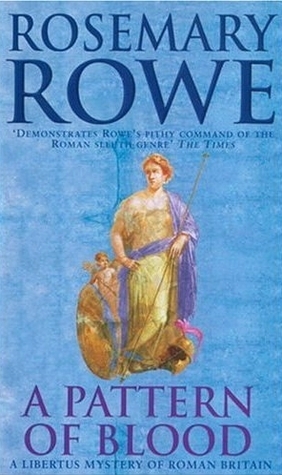Oh my, as you might expect from a man who makes his living piecing together small pieces of mosaic to make a pattern these mysteries are not easy to solve. In fact they are very convoluted. Libertus is an ex slave, in his fifties with a patron, Marcus, who is a high status Roman, not that this does much for Libertus's fortune. He also owns his own slave Junio, a young lad who is being taught not just pavement making but also his Libertus solved his mysteries. There is a missing wife, Libertus was a free Celt with his own roundhouse and servants, he has quite a high status before the Romans took him and sold him into slavery over twenty years earlier and he has not seen his wife Gallus since that dreadful day, though he keeps looking. A Decurion was stabbed while coming home from a dayattheraces, fortuitous Libertus happened to be in the area and saw it happen, the man Quintus survived the attack (though he was severely injured) and Libertus thought no more about it. Now, a month later Marcus is on his way to visit with Quintus and insists on Libertus coming with him there's been a worrying development in the stabbing case and it.May have been political. Marcus wants Libertus to do his thing and get answers. The men travel to.Quintus house but before they can even be introduced to.Quintus the man is found bleeding out.from a stab wound. Marcus immediately orders all the entrances and exits to the property locked and forbids anyone from leaving, the murderer must still be in the building. There are several suspects, a disgruntled son, a beautiful wife, her ex husband, a political rival and a bondsman, if not then then maybe one of the slaves did it..........who knows but whatever Marcus thinks he has it solved within hours but Libertus is not convinced......................... This series is very entertaining, I've read a few Roman mystery series now and all of them deal.with Roman citizens, some wealthy, some poor but all.citizens which bestows a certain cache onto a person. Libertus is different, here we see the other side of.Roman society, he has been the lowest of the.low, a slave, and he knows what a slave suffers, he is also aware that even though he is free now, with a patron, that one wrong word of gesture could see it all disappear. He may be a citizen now but he is still a Felt and an ex slave scrabbling for a living dependent on the whims of his patron...............not an easy place to be...

